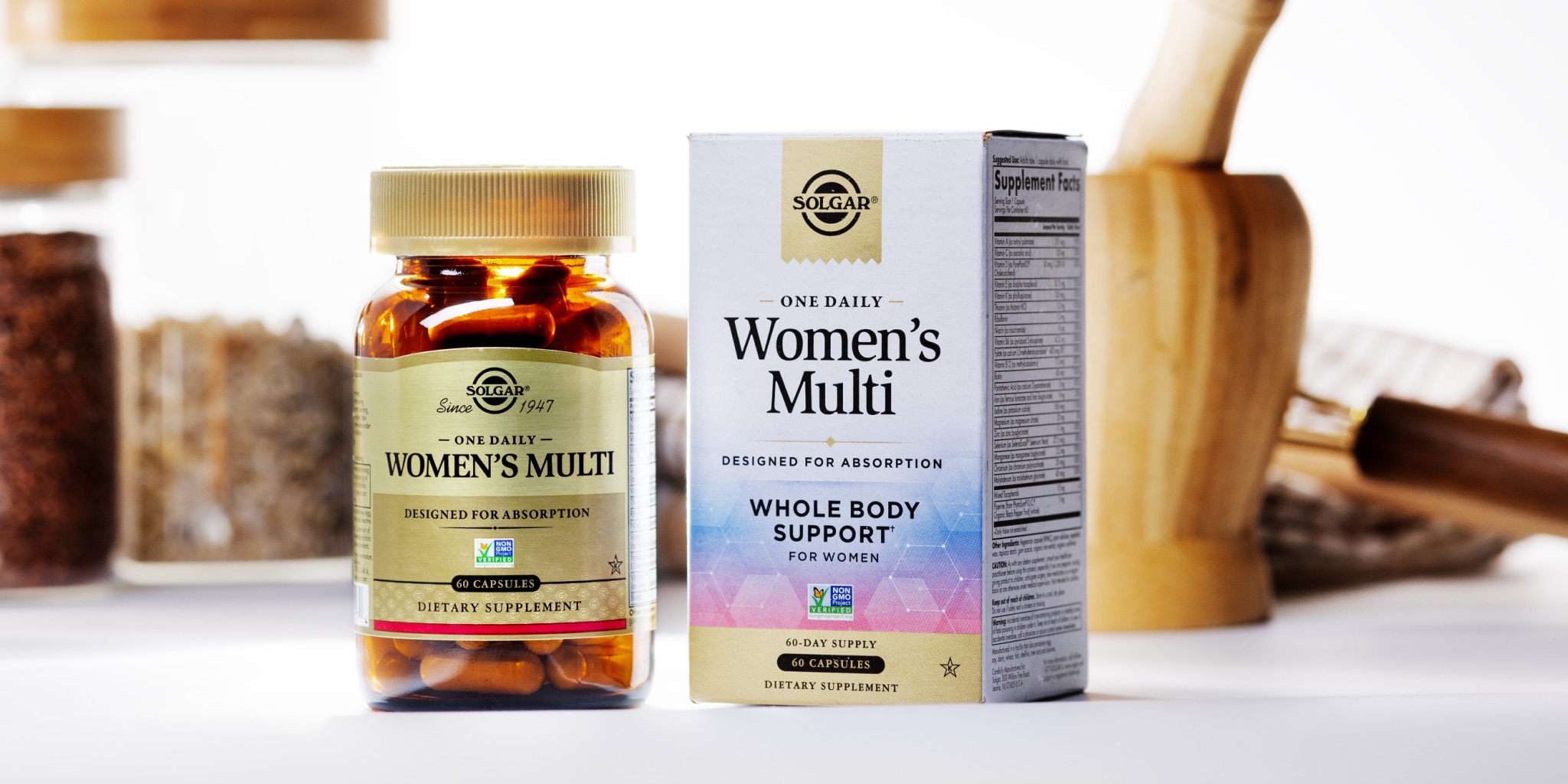Key Takeaways:
- Timing Matters: The best time to take a multivitamin depends on your dietary habits, but generally, it’s recommended to take it with a meal to enhance the absorption of fat-soluble vitamins. Consistency in timing is key to reaping the benefits.
- Multivitamins vs. Individual Vitamins: Choosing between a multivitamin and individual vitamins depends on your unique needs.
Multivitamins are a great way to get the nutrients you need in a convenient format. However, navigating the world of multivitamins can be bewildering. When is the best time to take a multivitamin? Is it better to take a multivitamin or individual vitamins? Should you choose a multivitamin with iron or without?
Join us as we dive deep into the world of multivitamins, and provide you with the answers you need before choosing a multivitamin.
When is the best time to take a multivitamin?
Should you take a multivitamin right when you wake up? At breakfast? At lunch?
The timing of when to take a multivitamin can be a crucial factor in maximizing its benefits. While there isn’t a one-size-fits-all answer, it’s generally recommended to take your multivitamin with a meal or shortly after eating. This approach helps enhance the absorption of fat-soluble vitamins like A, D, E, and K, as they are better absorbed in the presence of dietary fats.
Taking your multivitamin with breakfast is a great habit; however, if your breakfast tends not to include much fat, it might be better to take it with lunch or dinner so that your body can absorb the fat-soluble vitamins.
Remember, the key is consistency. Whether it’s with breakfast, lunch, or dinner, establishing a routine that works for you ensures you don’t forget to take your multivitamin and consistently receive the benefits it offers.
Can I take my multivitamin at night?
So you forgot to take your multivitamin during the day, and now want to pop it before bed – is that okay?
It depends.
Taking a multivitamin before bed is better than not taking it at all. Absorption only drops by about five to ten percent if you take them in the evening or without food and water.1
However, some people find that taking a multivitamin too close to bedtime can disrupt their sleep due to the potential energizing effects of certain vitamins, like B-complex vitamins. If this is a concern for you, consider opting for a morning or midday dosage instead.
Are multivitamins or individual vitamins better?
Should you opt for a multivitamin or several individual vitamins?
This decision largely depends on your specific dietary needs, lifestyle, and health goals. Multivitamins offer convenience by providing a broad spectrum of vitamins and minerals in a single tablet or capsule, which can be particularly useful for those who may have difficulty meeting their daily nutrient requirements through their diet alone. They can also be a more cost-effective and easy option than buying several different vitamins and supplements.
On the other hand, individual vitamins allow for precise customization of your supplementation regimen, targeting specific nutrient deficiencies and health benefits. This approach can be valuable for individuals with known nutritional deficiencies or those following specialized diets, such as vegans or athletes with increased nutrient demands.
Ultimately, the choice between multivitamins and individual vitamins should be guided by a thorough understanding of your unique nutritional needs and, ideally, consultation with a healthcare professional who can provide personalized recommendations.
Do multivitamins give you energy?
Taking a multivitamin won’t give you a direct energy boost in the way that coffee or an energy drink will. However, multivitamins play a crucial role in supporting overall energy levels indirectly.
Multivitamins contain essential vitamins and minerals that are involved in various energy-producing processes in the body. For instance, B-complex vitamins (such as B1, B2, B3, B6, and B12) help convert food into energy and support the functioning of the nervous system.†
Solgar® Multis include a range of B-vitamins, including B12, which help support energy.†
Iron, another common component of multivitamins, aids in oxygen transport to cells, which is vital for energy production.† If you’re looking for a multivitamin with iron, Solgar® Women’s Multi is a great choice.
And remember, multivitamins should be taken as part of a well-balanced diet and a healthy lifestyle to experience their full benefits.
Should your multivitamin have iron?
Whether your multivitamin should contain iron or not largely depends on your individual needs and circumstances.
Iron is a crucial mineral that plays a vital role in carrying oxygen to body tissues and supporting overall health. However, not everyone requires supplemental iron, and in some cases, excessive iron intake can be harmful.
If you’re at risk of low iron status, have heavy menstrual periods, are pregnant or breastfeeding, or follow a vegetarian or vegan diet, a multivitamin with iron may be beneficial.
On the other hand, if you are a postmenopausal woman or a man with no specific iron-related health concerns, a multivitamin without iron may be more appropriate, as excessive iron intake can lead to adverse effects. Consult with a healthcare professional to determine your specific iron needs and whether including iron in your multivitamin is necessary for your overall health.
Best women’s multivitamin with iron
WOMEN’S MULTI
Supports…
- Reproductive & breast health†
- Energy & stress†
- Bone & heart health†
- Immune health†
With 18 highly bioavailable vitamins & minerals including folate, D3, and iron.
How to choose the right multivitamin for you
When choosing a multivitamin, be sure to choose one that’s formulated for your age and sex.
The health needs of a woman in her 20s may be very different than those of a man in his 50s, and so their multivitamins should look different as well. To learn more about what to look for in a multivitamin, read our article: 5 Multivitamin Must-Haves.
Best multivitamin for women under 50
SOLGAR® WOMEN’S MULTI
Supports…
- Reproductive & breast health†
- Energy & stress†
- Bone & heart health†
- Immune health†
With 18 highly bioavailable vitamins & minerals including folate, D3, and iron.
Best multivitamin for women over 50
SOLGAR® WOMEN’S MULTI 50+
Supports…
- Healthy hair, skin, & nails†
- Energy & stress†
- Bone & heart health†
- Immune health†
With 18 highly bioavailable vitamins & minerals including biotin, vitamin B12, and vitamin E.
Best multivitamin for men under 50
SOLGAR® MEN’S MULTI
Supports…
- Muscle & bone health†
- Energy & stress†
- Heart health†
- Immune health†
With 18 highly bioavailable vitamins & minerals including vitamins A, D3, and zinc.
Best multivitamin for men over 50
SOLGAR® MEN’S MULTI 50+
Supports…
- Prostate health†
- Muscle & bone health†
- Energy & stress†
- Heart health†
- Immune health†
With 20 highly bioavailable vitamins & minerals including selenium, and vitamins A, B12, and D.
GET THE LATEST UPDATES AND EXCLUSIVE DEALS WHEN YOU SIGN UP FOR OUR NEWSLETTER!
Summing it up
Finding the right multivitamin can be daunting, but opting for a multivitamin rather than individual vitamins can end up saving you time and money. Remember, the key is consistency, and consulting a healthcare professional is always a good idea.
†*These statements have not been evaluated by the Food and Drug Administration. These products are not intended to diagnose, treat, cure or prevent any disease.
The information provided on this site is intended for your general knowledge only and is not a substitute for professional medical advice or treatment for specific medical conditions. Always seek the advice of your physician or other qualified healthcare provider with any questions you may have regarding a medical condition. The information on this website is not intended to diagnose, treat, cure or prevent any disease. Never disregard medical advice or delay in seeking it because of something you have read on the Solgar® site.









